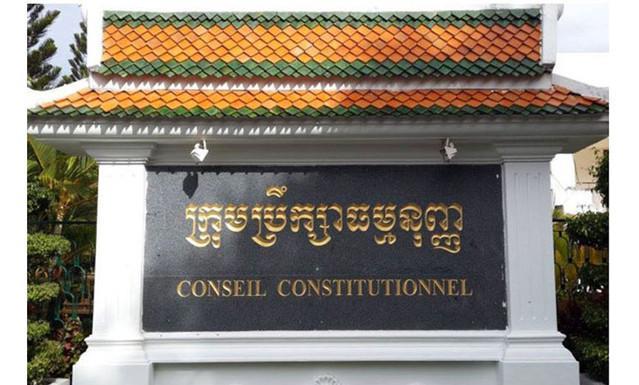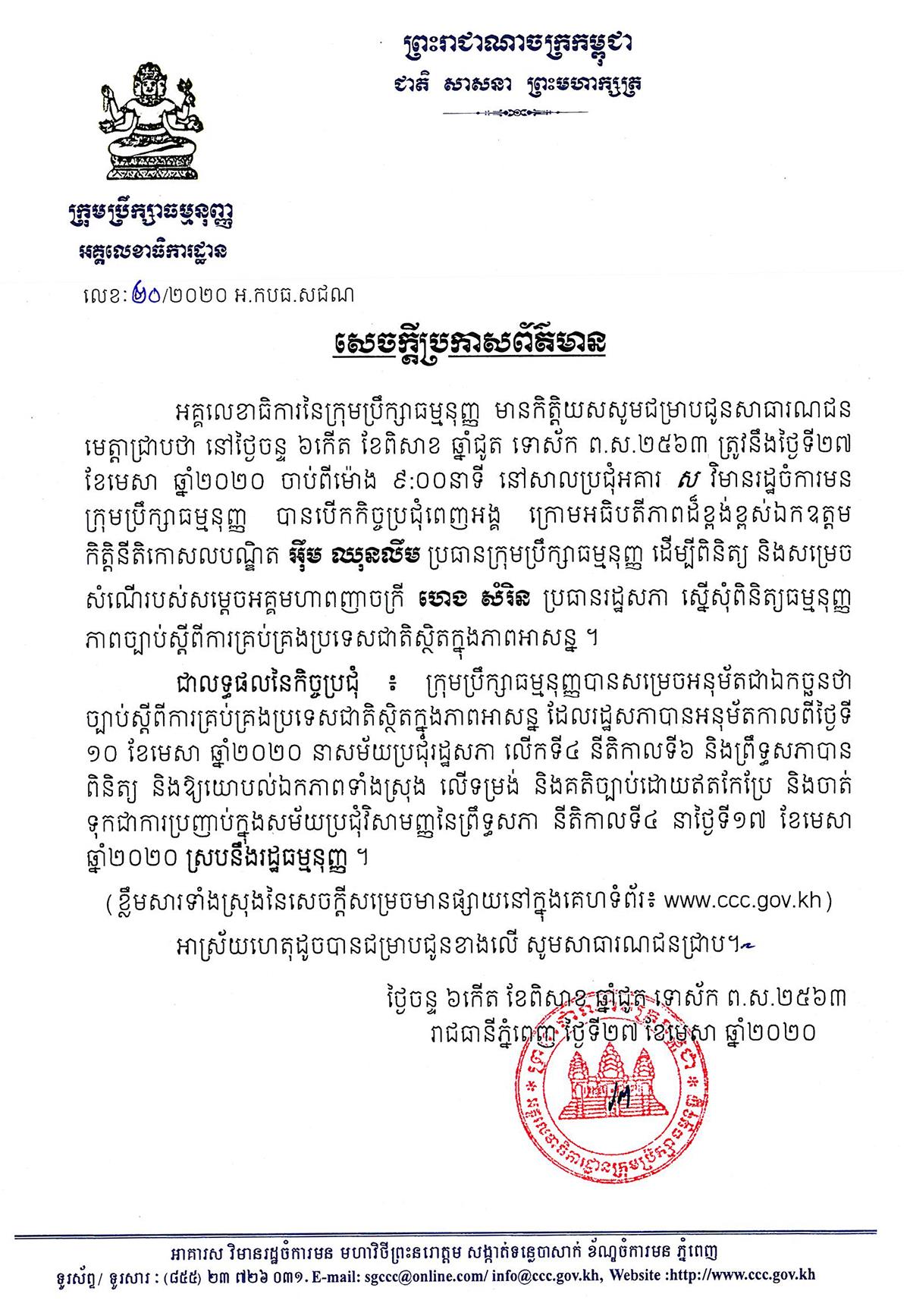Phnom Penh (FN), Apr. 27 – The Constitutional Council of Cambodia (CCC) unanimously adopted Law on the Management of the Nation in State of Emergency (LMNSE).
The decision was made in a plenary session held on Monday, headed by Im Chhun Lim, president of the Kingdom’s top judicial institution, the CCC.
In the press release issued by the CCC on Monday, the Constitutional Council fully agreed with LMNSE without making any changes.
“The CCC considers Law on the Management of the Nation in State of Emergency is in conformity with the Constitution.”
Article 140 new of Cambodia's Constitution says: "The rules of procedure of the National Assembly, the rules of procedure of the Senate and the organic laws must be sent to the Constitutional Council for examination before their promulgation. The Constitutional Council shall pronounce within the time frame of thirty (30) days at the latest, whether the laws, the rules of procedure of the National Assembly and those of the Senate are or not in conformity with the Constitution.
Normally, after the Constitutional Council adopts the draft law, it is ready for the King to sign and promulgate through a Royal Kram.
It is worth recalling that Law on the Management of the Nation in State of Emergency has 12 articles and divided into five chapters.
Article 1 provides for the purpose of the law, which aims to govern the nation under a state of emergency in order to safeguard national security and public order, to protect citizens’ lives and public health, and to protect properties and environment.
Article 4 states that a state of emergency can be declared when the people face dangers such as war or foreign invasion, public health concerns caused by pandemics, serious chaos to national security and public order, and severe calamity.
Article 5 stipulates specifically restrictive measures that can be taken by the government. These include prohibition of or restrictions on traveling, freedom of assembly and work; quarantine; mobilization and evacuation; governing of properties and services; price management; closures of facilities; information monitoring; and other measures deemed necessary to respond to emergencies. These measures can be applied nationwide or over a specific geographical scope.
Article 10 says the conduct of state authorities is also governed by this law. Officials who conduct arbitrary abuse of power in contravention to the purpose of this law shall be punished under the laws of Cambodia
The law was prepared in accordance with Article 22 of the Constitution, which stipulates that: “When the nation faces danger, the King shall make a public proclamation placing the country in a state of emergency after unanimous agreement from the Prime Minister, the President of the National Assembly, and the President of the Senate.”
=FRESH NEWS

